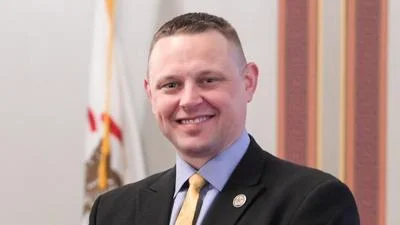U.S. Rep. Cheri Bustos (D-IL) considers her recent testimony on Down syndrome funding and research a matter of life and death.
“Developing a better understanding on Down syndrome may help scientists find breakthroughs to fight cancer and heart attacks, which affect so many of our loved ones,” Bustos told a House Appropriations Commttee taking testimony on the issue. “Additionally, we must do more to help those with Down syndrome lead longer and healthier lives.”
Bustos has long been championing the cause.

U.S. Rep. Cheri Bustos (D-IL)
“It’s very important to me that we treat every American with the value and respect that they deserve,” Bustos said. “I’m a co-chair of the Congressional Task Force on Down syndrome because I think this is the right thing to do.”
Joined in providing testimony before the committee by fellow U.S. Reps. Cathy McMorris Rodgers (R-WA) and Pete Sessions (R-TX), Bustos told the panel that greater funding paving the way for further research could lead to enhanced treatment for other medical conditions, such as Alzheimer's disease, autoimmune disorders and cancer.
“While National Institute of Health funding has seen tremendous growth over the last 20 years, the funding for Down syndrome research has remained relatively flat,” Bustos said. “We must make solving this challenge a top priority. We need more research into Down syndrome, not less.”
Bustos shared the story of a young girl named Brianna she met when she came before Congress in support of passage of the ABLE Act, which gave tax advantages to the savings accounts of people with disabilities.
“I fell for her right away,” Bustos said. "I swiped my voting card and told her she should press the button to vote for me. As she pressed the button, the entire gallery erupted in cheers and applause. She had just cast the vote that passed the bill.”
Already the leading cause of developmental delay in the U.S., Down syndrome is becoming even more common, Bustos said.
“I’m sure all of us have seen a family member or close friend deal with the impact of Alzheimer’s or dementia,” Bustos said. “Right now, close to 100 percent of folks with Down syndrome will display signs of Alzheimer’s by their 40s.”
Bustos believes getting a handle on Down syndrome could ultimately provide a pathway to making the world a far healthier place for millions.
“With a stronger commitment from Congress to support Down syndrome research throughout the National Institute of Health, we could be even closer to solving the great health problems of our time,” she said.
Global Down Syndrome Foundation President Michelle Sie Whitten applauded the efforts of all the lawmakers involved.
"Funding for Down syndrome research at the National Institutes of Health unquestionably affects the health of people with Down syndrome," she said in a press release. "This important hearing will explore how current and future Down syndrome research can help people with Down syndrome and lead to life-changing treatments for devastating diseases like Alzheimer's and cancer."




 Alerts Sign-up
Alerts Sign-up